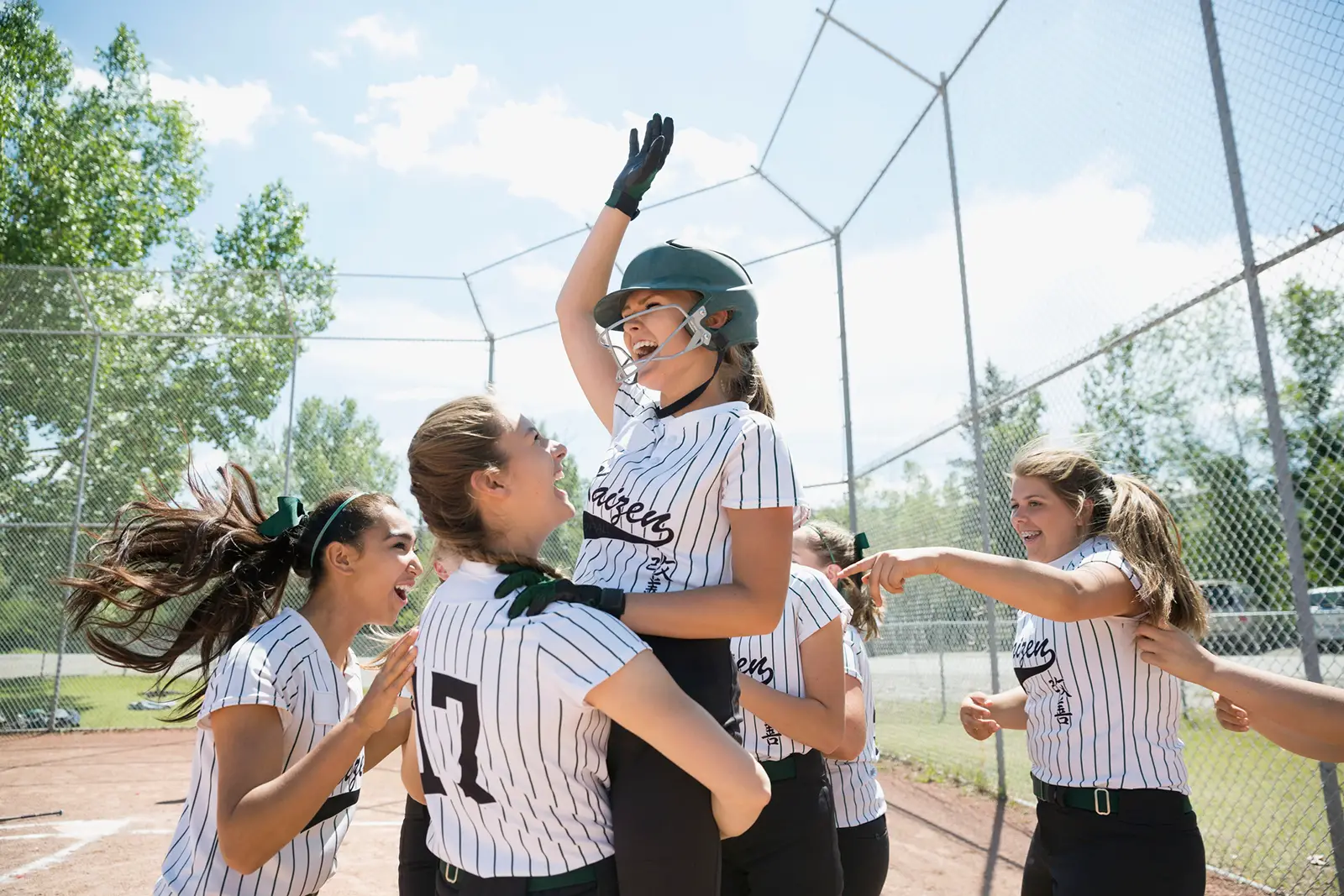Celebrations or commemorations with special importance, such as a holiday, a marital, or a significant birthday, are known as special occasions and events. These occasions frequently entail family and friends meetings and may include unique customs, rituals, or activities. Christmas, Easter, Hanukkah, Thanksgiving, birthdays, anniversaries, graduations, and baby showers are a few examples of regular significant occasions and events.
Special occasions and events can be both joyous and meaningful and are often an opportunity for people to come together and celebrate special moments in life. MailtoSelf had a helping hand for those beginners by guiding how to properly write a thank you letter for these sorts of things. Take time to read and learn more about thank you letters.
What Is It?
A letter intended to show thanks or appreciation to someone who attended or took part in a particular occasion or event is known as a thank you letter for that occasion or event. It is a technique to express gratitude for the person’s aid, gift, or presence while also letting them know their efforts were seen and respected.
Depending on the occasion and the connection between the writer and the recipient, thank-you notes for official and casual occasions and events are acceptable. They can be typed or handwritten, and they can be sent or emailed.
Being detailed and expressing gratitude for the person’s involvement are crucial in thank you letters for special occasions or events. The receiver should know that you hope they will be a part of your life and future celebrations. You should also add memorable details or moments from the occasion or event.
Why Is It Important?
Sending a letter of appreciation in response to a noteworthy occasion or event is crucial for some reasons:
- Gratefulness:: When someone has taken part in or made a contribution to a particular occasion or event, you can show your thanks and appreciation by sending them a thank you note. It serves as a means of expressing gratitude for their assistance, time, and support and letting them know that their presence was welcomed and appreciated.
- Ethics: As a matter of politeness and as a method to respect and show regard for others, it is customary to send thank-you letters. It serves as a means to express gratitude to individuals who participated in or contributed to a memorable occasion or event and show their compassion and generosity.
- Interaction: Building relationships and spreading goodwill may be accomplished by sending thank you letters. By doing so, you may express your appreciation for the recipient’s participation in the occasion or event and your value for their assistance.
- Commemoration: Writing a thank you note is a method to keep the memories of a memorable occasion or event alive and to maintain the relationship between the sender and the receiver. It is a method to reflect on the occasion or event with thanks and appreciation and to communicate your want for the receiver to stay a part of your life and future festivities.
What Are The Different Types Of Special Occasions And Events?
Special events and occasions come in various forms, each with a distinct goal, meaning, and character. Typical categories of unique occasions and events include:
- Holidays: Holidays are special occasions or events set aside to celebrate a particular cultural, historical, or religious event or tradition. Examples of holidays include Christmas, Easter, Hanukkah, Thanksgiving, and Independence Day.
- Weddings: Weddings are special occasions or events that mark the union of two people in marriage. Weddings often involve a ceremony, a reception, and various traditions and customs and are often attended by friends and family.
- Birthdays: Birthdays are special occasions or events that mark the anniversary of a person’s birth. Birthdays are often celebrated with parties, gifts, and special traditions, and are an opportunity to celebrate the life and accomplishments of the birthday person.
- Anniversaries: Anniversaries are special occasions or events that mark the anniversary of a particular event or milestone, such as a wedding anniversary, a business anniversary, or a personal milestone. Anniversaries are often celebrated with special activities or traditions and commemorate the event or milestone.
- Graduations: Graduations are special occasions or events that mark the completion of a particular level of education, such as high school, college, or graduate school. Graduations often involve a ceremony, a reception, and the awarding of diplomas or degrees and are a way of celebrating the achievements of the graduation class.
- Baby showers: Baby showers are special occasions or events to celebrate the impending arrival of a new baby. Baby showers often involve gift-giving, games, and other traditions and are a way of supporting and preparing for the arrival of the new baby.
What Are The Advantages And Disadvantages?
Here are some advantages of sending a thank you letter for a special occasion or event:
- It expresses gratitude and appreciation to the recipient.
- It demonstrates good etiquette and consideration for others.
- It helps to strengthen relationships and build goodwill.
- It preserves the memories of the occasion or event.
There are not many disadvantages to sending a thank you letter for a special occasion or event, but here is a couple to consider:
- It can be time-consuming to write and send a thank you letter, especially if you have many people to thank.
- The connection may suffer if the thank you letter is not written or sent in a true and considerate manner since it may come off as impersonal or disingenuous.
What Should It Include?
A thank you letter for a special occasion or event should include the following elements:
- A greeting: Start the letter with a greeting, such as “Dear (Name).”
- An expression of gratitude: The main purpose of the letter is to express your gratitude or appreciation to the recipient, so make sure to include a sentence or two thanking them for their presence, gift, or support. Be specific about what you are thanking them for.
- A mention of the occasion or event: Mention the special occasion or event that you are thanking the person for, and remind them of any specific moments or memories that stand out from the event.
- Personal touches: Personalize the letter by adding a personal anecdote or memory or mentioning something you appreciate about the recipient. This will help to make the letter more sincere.
- A closing: End the letter with a closing such as “Sincerely” or “Best regards,” followed by your name.
Writing Guidelines
When composing a letter of appreciation for a unique occasion or event, keep the following in mind:
- Personalize it: Don’t use generic or impersonal language; a thank-you letter should be heartfelt and personal. To demonstrate that you are sincerely appreciative and that the letter is not just a formality, include the recipient’s name and provide personal facts or recollections from the occasion or event.
- Be prompt: It’s ideal to write a thank you note soon after the occasion or event when the memories are still vivid, and your thanks are still sincere.
- Be detailed: Specify what you are thanking the receiver for and any particular recollections or events from the occasion that sticks out. This will make the letter seem more genuine and significant.
- Use appropriate language and layout: A thank you note has to be well-written and structured with a concise beginning, middle, and end. Avoid slang or informal language, and use good grammar and spelling.
- Keep it short: Although a thank-you letter doesn’t have to be extensive, it should be in-depth. Ensure to include all crucial details while keeping the letter concise and to the point.
- Proofread: Make sure to proofread your letter for any errors or typos. A thank you letter with spelling or grammar mistakes can come across as careless or unprofessional.
When Should You Send It?
Within a few days following the event, when memories are still vivid, and gratitude is still sincere, is the ideal time to write a thank you note for a memorable occasion or event. This improves the relationship with the recipient and enables you to show your thanks promptly.
It is still crucial to submit the letter of appreciation as soon as possible, even if you cannot do so right away after the event. A late thank you note is preferable to one that is never sent. On the other hand, it’s crucial to apologize for the delay and recognize in the letter that it is late.
Typically, it’s polite to write a note of gratitude for a gift or favor within two weeks of receiving it. It is appropriate to send the thank you note within a month following the event for events or occasions that need longer, like a weekend stay or a longer trip.
The timing of a thank you note will depend on the occasion or event, the connection between the sender and the receiver, and other factors that should be kept in mind. The letter’s sincerity and passionate delivery in a timely way are of utmost importance.
Conclusion
To express thanks and appreciation for the people and experiences that have enriched our lives, it is crucial to appreciate unique occasions and events. It serves as a method to recognize the importance and worth of the occasion or event and to show our gratitude to the individuals who contributed to its significance.
Taking the time to appreciate a particular occasion or event also fortifies bonds and fosters goodwill. When we express our thanks and appreciation to others, we build a sense of community and a good feeling that can lead to more fulfilling connections.
Finally, valuing a particular occasion or event may make life more joyful and meaningful by encouraging us to reflect on the good times we’ve had. It enables us to appreciate and reflect with kindness on the positive things that have occurred in our lives.
Thank You Letter Templates For Special Events & Occasions
We offer samples and templates of thank you letters, like on holidays such as year-end, thanksgiving, holiday trips, holiday wishes received, and even a thank you letter to God. Thank you letters for the wedding day, such as a letter to the bride’s parents, to the mother-in-law, to bridesmaids, to your parents, to a photographer, and even a guide on how to properly write a thoughtful wedding thank you note.
We prepared guidelines and templates of thank you letters for birthdays like invitation acceptance, response to a birthday invitation, the importance of thank you letters for birthday wishes on Facebook, birthday emails to customers, and thanks to a birthday treat, and thanks to everyone who attended your birthday. For graduation: a thank you letter for graduation money, graduation certificate of appreciation, and best ideas for graduation thank you messages.
In addition, for all the scenarios mentioned above, look for these thank you letters that might help you at your baby shower: a thank you letter to your baby shower host, thank you note for baby gifts. On special events, such as thank you letter after event attendance, to an event organizer, for hospitality, for an invitation to the event, guest stay at the hotel, for attending an open house, christening, anniversary and a thank you letter to webinar or a guest speaker.




